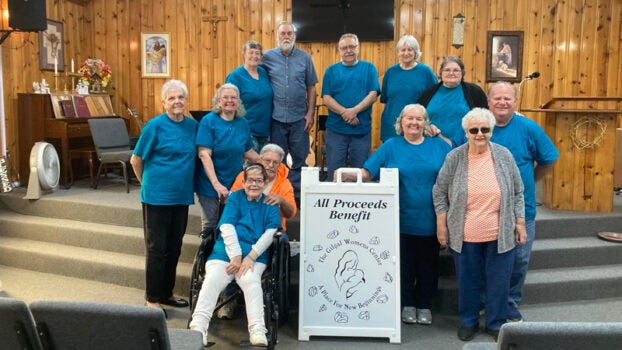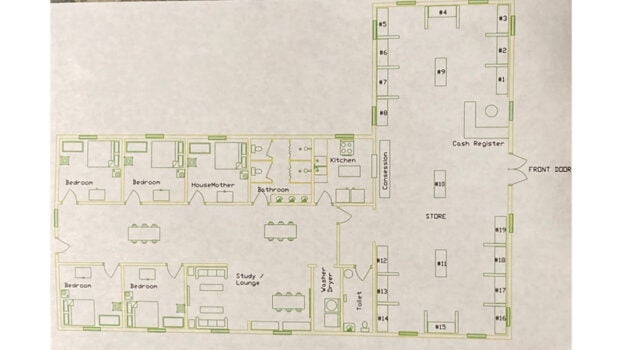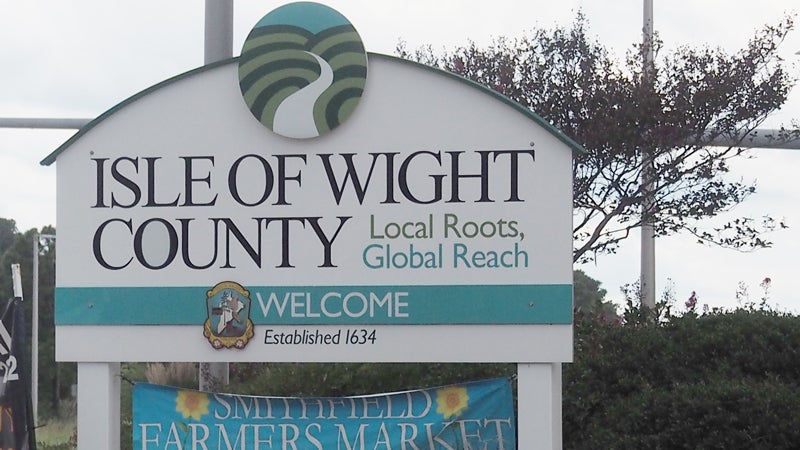Proposed Carrollton maternity home seeks to dissuade abortions
Published 5:40 pm Wednesday, March 27, 2024
In 1974, one year after the U.S. Supreme Court’s landmark Roe v. Wade decision legalized abortion nationwide, Wendy Jeffers found herself pregnant at 18 years old.
She’d just married and moved in with her high school sweetheart, Allen, and despite her young age, chose to carry the pregnancy to term.
“When God gives you your child … he or she is your gift,” said Jeffers, who applauded the Supreme Court’s current 6-3 conservative majority when it overturned Roe in 2022.
She’s now looking to put her anti-abortion views into practice by opening what she’s named the Gilgal Women’s Center, a faith-based maternity home.
“We want to save the momma and the baby,” Jeffers said.
Jeffers and her 20-some fellow congregants at Carrollton Holiness Church, where Allen serves as lead pastor, have raised just over $46,000 in two years toward purchasing land for the shelter, which she envisions being located near the church. The idea, Jeffers said, is to dissuade women and girls who find themselves unexpectedly pregnant and without stable housing from seeking abortion by providing them with a place to stay and shared childcare.
Preliminary architectural plans show communal kitchen, bathroom and laundry facilities and five bedrooms, each with a bed, dresser and crib.
“What causes a lot of this is parents either forcing the child to have an abortion, like a teenager, or a husband or a boyfriend doesn’t want to be dealing with the child, but there are alternatives,” Jeffers said.
It’s not quite the same concept as the faith-based crisis pregnancy centers across the United States that have themselves become controversial for employing what the International Journal of Women’s Health described in 2022 as “purposefully manipulative and deceptive practices” to “present themselves as healthcare clinics while providing counseling explicitly intended to discourage and limit access to abortion.” According to Jeffers, the Gilgal Women’s Center would be limited to lodging and would not provide ultrasounds or other medical services.
The center’s name and logo, which features a woman and child surrounded by 12 stones, are each nods to Gilgal in the Bible’s book of Joshua, where the ancient Israelites are said to have stopped after crossing the Jordan River and erected a circle of stones representing the 12 tribes as a memorial to God and to leaving behind their former lives.
Women and girls would be able to stay at the proposed shelter for up to two years, Jeffers said, provided they sign a contract obligating them to comply with a series of conditions.
“The girls would be required to attend church,” states a letter from the church.
Jeffers said tenants would also be vetted for drug use through an application process.
Assisting her with fundraising is Cheri Britt, a Surry County resident and fellow congregant at Carrollton Holiness who formerly served as executive director of Hope 4 Life VA, a Portsmouth-based crisis pregnancy center. In her former role, Britt would travel to Planned Parenthood clinics across Hampton Roads in an RV outfitted with an ultrasound machine.
“There are parents who say if you have this baby you can’t live here anymore … a maternity home is needed in the area,” Britt said.
In the mid-1970s when Jeffers gave birth, the nationwide teen birth rate stood at 58 per 1,000 women and girls ages 15-19. In the five decades since, Virginia saw its share of teen births plummet to 13 per 1,000 as of 2020, according to U.S. Centers for Disease Control data.
Despite this, Virginia’s number of abortions rose by 14,200, or 75%, from 2020 to 2023. Roughly 4,400, or 17% of the increase, is attributed to out-of-state women traveling into Virginia for the procedure, according to the Guttmacher Institute, an abortion-rights research and policy organization.
Roe’s overturning kicked off a wave of state-level anti-abortion laws including a near-total ban in West Virginia and a 12-week ban in North Carolina. Virginia remains the last Southern state where abortion is largely unrestricted until the third trimester.
According to Virginia Department of Health data, Isle of Wight County saw 48 terminated pregnancies in 2020, down 40% from 81 in 2010. Out of 15 Isle of Wight teenage pregnancies in 2020, women ages 18-19 accounted for all but two of the total. The county’s 2020 totals reflected a 59% drop from 37 teen pregnancies in 2010 and an 85% drop in pregnancies among girls ages 15-17.
Out of the 15 teen pregnancies in 2020, five were terminated, down from 10 terminations in 2010.







